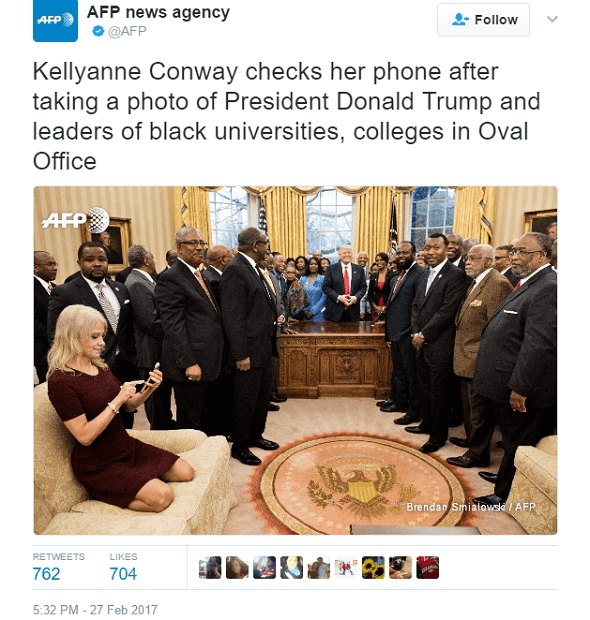[guest post by Dana]
Racehl Dolezal is back in the news. If you recall, she was an Adjunct Professor of African-American Studies at Eastern Washington University as well as the high-profile president of the Spokane chapter of the NAACP before losing both positions after it came to light that Dolezal, who had identified as black, was actually white:
“Are you,” asked the reporter, “African American?” Like a cartoon, her features froze. “I don’t understand the question.” The reporter pressed, “Are your parents white?” Dolezal turned from the camera and fled.
Footage of the confrontation flew around the world. Dolezal’s white parents released photographs of their daughter as a blonde white child, and appeared on TV to denounce her as a fraud; she had been living a lie, pretending to be black, when she was no more African American than they were. Dolezal resigned from her NAACP position, was fired by the university, lost her local newspaper column and was removed from the police ombudsman commission. Enthralled by her disgrace, talkshows and radio phone-ins sneered and raged. Why did she do it? What had she been thinking? When it emerged that she had once sued a university for discriminating against her because she was white, Dolezal’s notoriety was complete.
Now it appears that Dolezal has hit on hard times as she is one month’s rent away from being homeless and relying on food stamps. Since her termination from the university, Dolezal claims she has applied for more than 100 jobs, but other than offers of porn and reality TV, she has not found work.
Dolezal still defends her “lifestyle” choice:
“For the first time in my life, I really decided consciously to be free from the repression, and free from feeling like I had to do things in a way that was acceptable to other people. I had the courage to be exactly who I was.” From that day on, Dolezal would be unambiguously and publicly black, and remains so to this day.
Wasn’t she lying? “The times that I tried to explain more, I wasn’t understood more. Nobody wanted to hear, ‘I’m pan-African, pro-black, bisexual, an artist, mother and educator.’ People would just be like, ‘Huh? What? What are you talking about?’ So I felt like by not talking about my biological ancestry, I gave people the opportunity to relate to me as an individual, not part of a group.”
But she was presenting herself as part of the “black” group, wasn’t she? “I do think a more complex label would be helpful, but we don’t really have that vocabulary. I feel like the idea of being trans-black would be much more accurate than ‘I’m white’. Because you know, I’m not white. There is a black side and a white side on all kinds of issues, whether it’s political, social, cultural. There’s a perspective, there’s a mentality, there’s a culture. To say that I’m black is to say, this is how I see the world, this is the philosophy, the history, this is what I love and what I honour. Calling myself black feels more accurate than saying I’m white.”
And in spite of all the hardship she has endured since having been exposed before the public as a white woman, Dolezal offers no apologies:
In all the intrigue and drama of her disgrace, does she think she’s done anything wrong? “No, I don’t. I don’t think you can do something wrong with your identity if you’re living in your authenticity, and I am. If I thought it was wrong, I would admit it. That’s easy to do, especially in America. Every politician, they’re like, ‘I’m sorry’ and then they just move on and everybody’s like, ‘Oh, they apologised and it’s all good’. Five minutes later, nobody remembers it. I’m not going to stoop and apologise and grovel and feel bad about it. I would just be going back to when I was little, and had to be what everybody else told me I should be – to make them happy.”
When I first wrote about Dolezal back in 2015, I said this:
Who are you to judge her for living out loud what she feels and believes is her own truth?? Don’t you know we’re not bound by anything as antiquated and restrictive as identity – be it gender or racial. It’s fluid. And who are you to make the determination of which identities one must remain wed to in their lives? Or maybe you and others just prefer to be selective in which white women you support who are seeking the freedom to be their perceived real selves.
However, according to commenters at the interview, I have it wrong:
Trans commentators have been incensed by the suggestion of parallels. “Transgender people transition out of medical necessity,” wrote one. “Dolezal’s ‘transition’ to black, on the other hand, is surrounded by layers of deception.” They argue that her colour was a choice, so cannot be analogous to their gender identity. But if we believe someone born without ovaries or a womb can be a woman, and accept radical surgery as a legitimate corrective necessity, is it so different for a woman who is born white but feels black to reposition herself on the racial spectrum?
It’s a brave crazy new world, people. Learn the rules, and try to keep up.
–Dana



